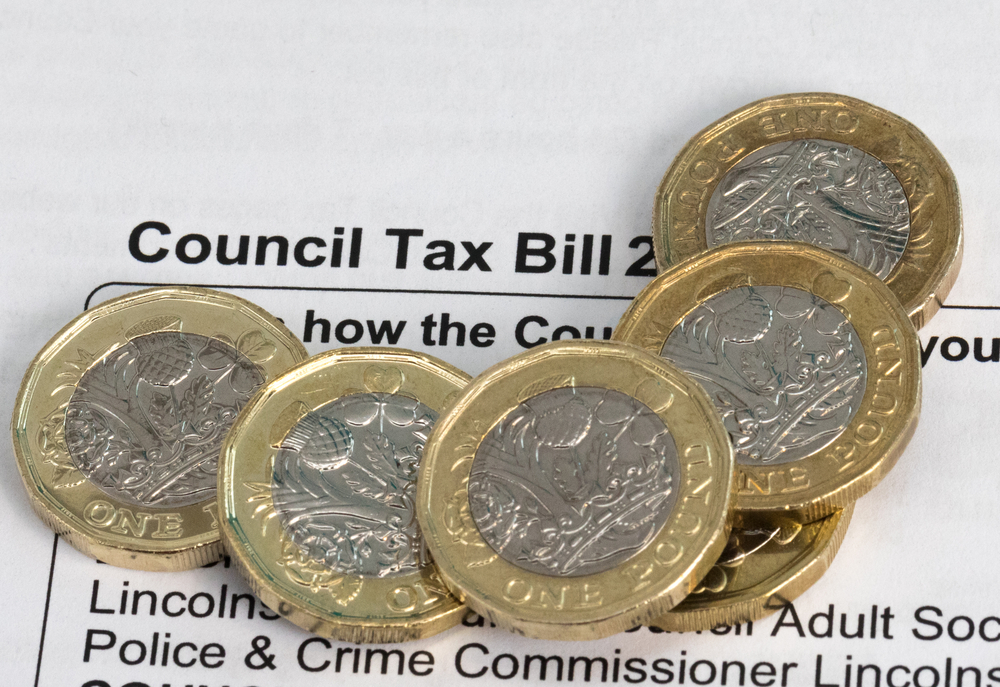Thousands of Scots who have not been able to pay their Council Tax bills this year, are now running out of time to enter into repayment plans with their local authority, before debts are passed out to sheriff officers for recovery.
It is anticipated over the next few weeks, many Scottish councils will now begin issuing formal demands for payment, giving people only 7 days to make a missed payment, followed by a final 14 day demand requiring them to pay what’s outstanding for the year.
If people fail to contact their local authority and enter into a repayment plan, they will then be sent a summary warrant, and 10% of what is owed will be added to the debt.
If people are still unable to pay, the debt will then be passed to sheriff officers for collection.
Tougher action expected after payment breaks
Missed Council Tax bills are nothing unusual for councils and procedures are well established for recovering any debts that are owed.
However, what makes this year different, is at the beginning of the lockdown many councils offered Council Tax payers the opportunity to take a two month payment break in April and May, instead of at the end of the financial year, in February and March. This was to mitigate the effects of the lockdown and also as an acknowledgement that thousands across the country had lost their job or had been furloughed.
However, across the UK, it is now believed over 800,000 households have fallen into arrears with their Council Tax bills.
As a result, Scotland’s local authorities are now planning to take tougher action over the next few months to begin getting the money in.
What should you do if you receive a seven-day demand?
The first step a council can take is to send out a seven-day demand when a payment is missed. So, if you had a payment break in April and May, then a payment would have been due in June. If you failed to make that payment, many Councils will have sent out a seven-day demand in July and August. These are generally considered to be soft demands, intended to remind people they have not made their payment and encourage them to make it as quickly as possible.
If you make the payment within the seven days, no further action is taken, providing you don’t miss any further payments.
What are 14-day demands?
A demand for payment that gives you 14 days is more serious, as this is for the full amount owed and has to be paid within that period. This will be a significant amount for most people, especially if they had a payment break in April and May, as most of the amount owed will still be due.
Many local authorities will, however, still enter repayment plans at this stage and not insist on the full amount being paid, providing you contact them within the 14 days. However, where they do, the amount you have to pay will normally be higher than normal. This is because you will have a shorter period of time to repay it, and most councils will insist the debt has to be repaid by the end of March 2021.
Summary warrant stage
Most of those who fail to enter into an agreement or pay the full amount owed within 14 days, will probably find that in September or October, they will receive a summary warrant for this year’s debt.
A summary warrant is the legal equivalent of a court order and can then see the debt being passed out to sheriff officers to collect.
This can mean having a charge for payments served on you and having your wages arrested or bank account frozen. It can also mean having property kept outside your home attached (such as car), so it can be taken away later and sold to pay your debts. It can also mean a surcharge of 10% of the debt being added onto your bill.
What can you do?
If you receive a Summary Warrant it is important to seek advice immediately as this means your debt is about to be sent to Sheriff Officers to be collected. It can also mean the amount you owe can begin increasing as in addition to the surcharge, sheriff officer fees can also be added to the balance.
Scots law does provide a number of remedies that can be used to stop action being taken against you, such as a statutory moratorium, which can give you breathing space from sheriff officers; and also other options like the Debt Arrangement Scheme, which lets you, repay your debts over a reasonable period of time. Other solutions may also be Protected Trust Deeds and bankruptcy, but the important thing is to seek advice.









